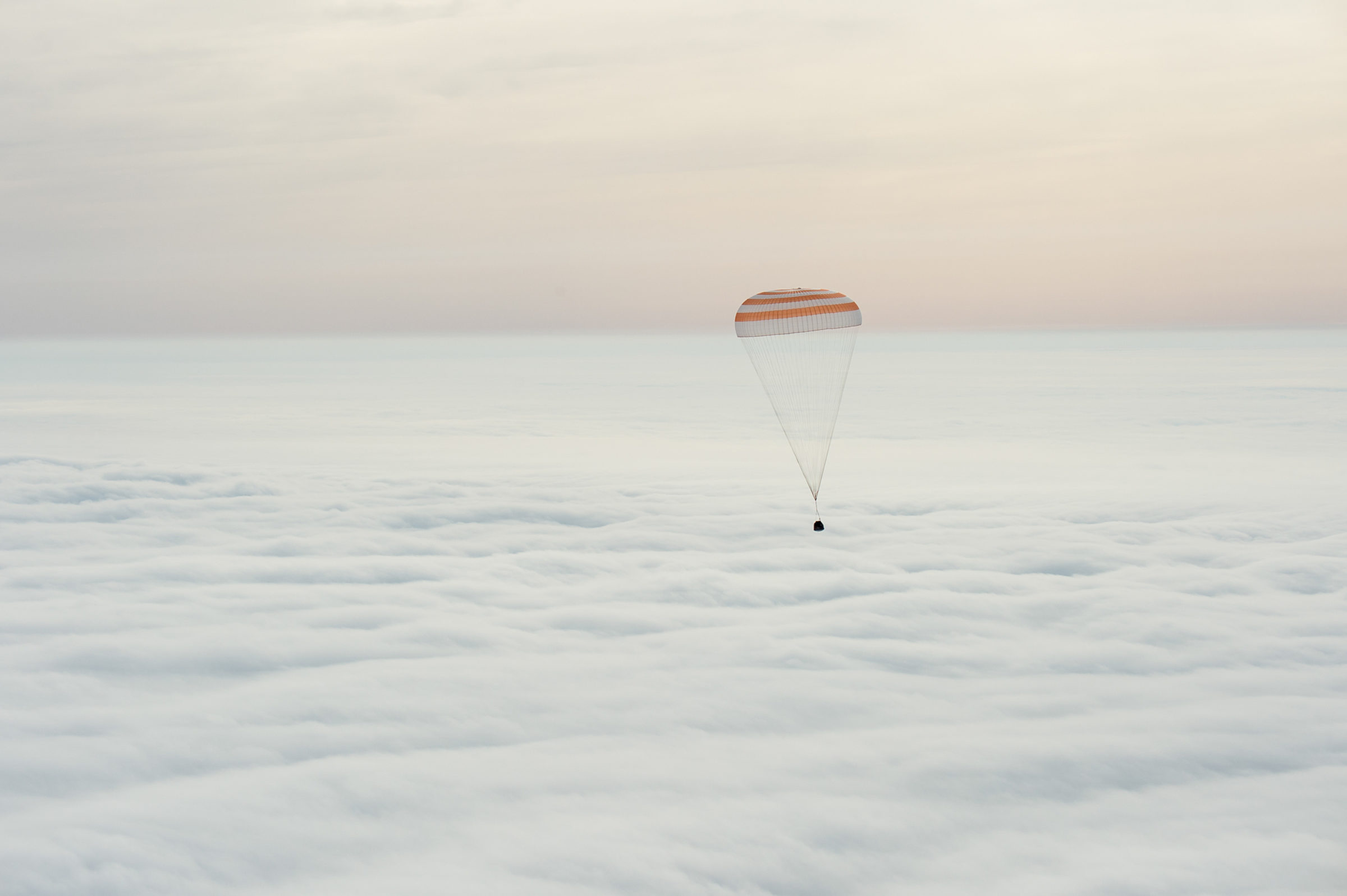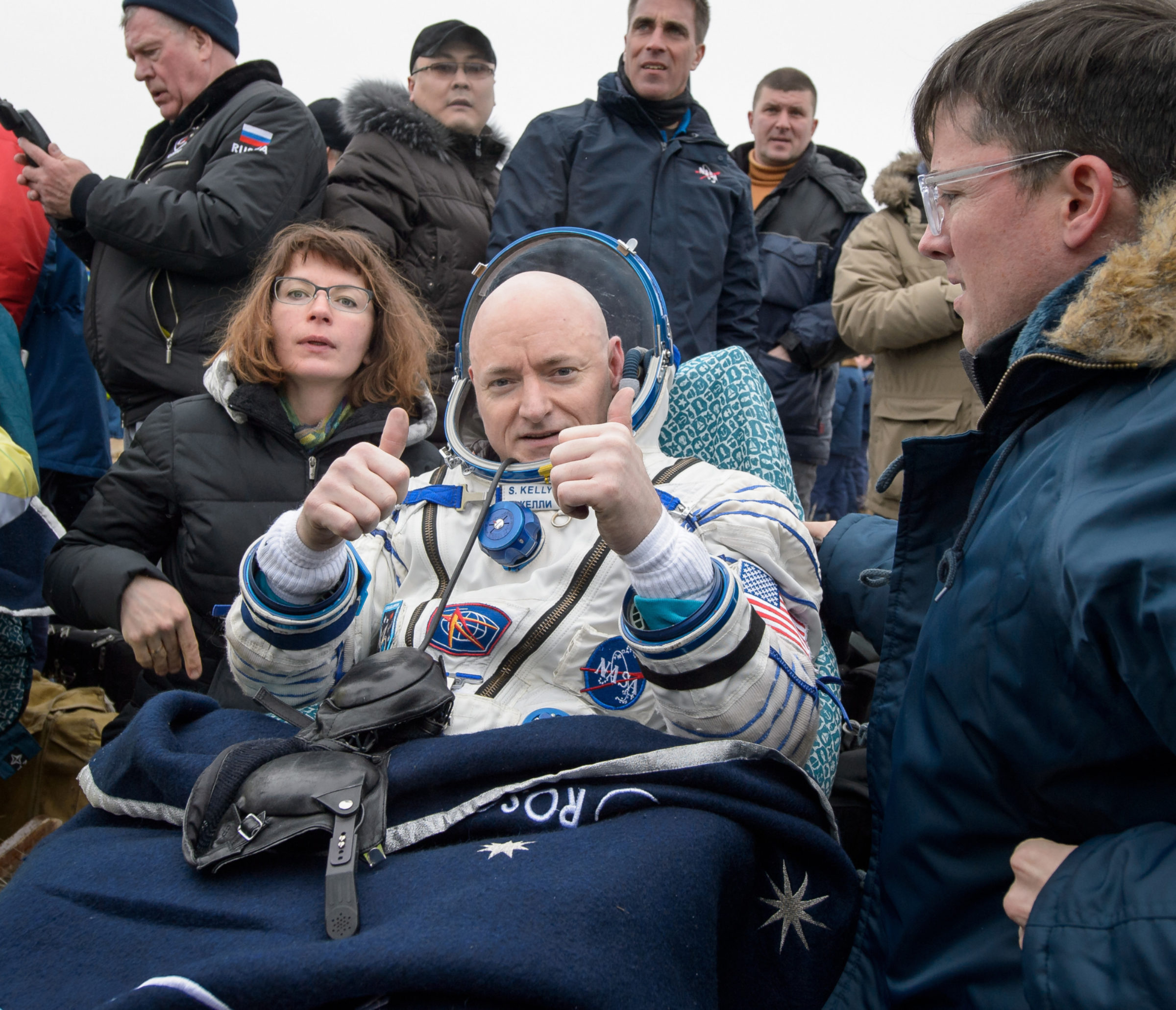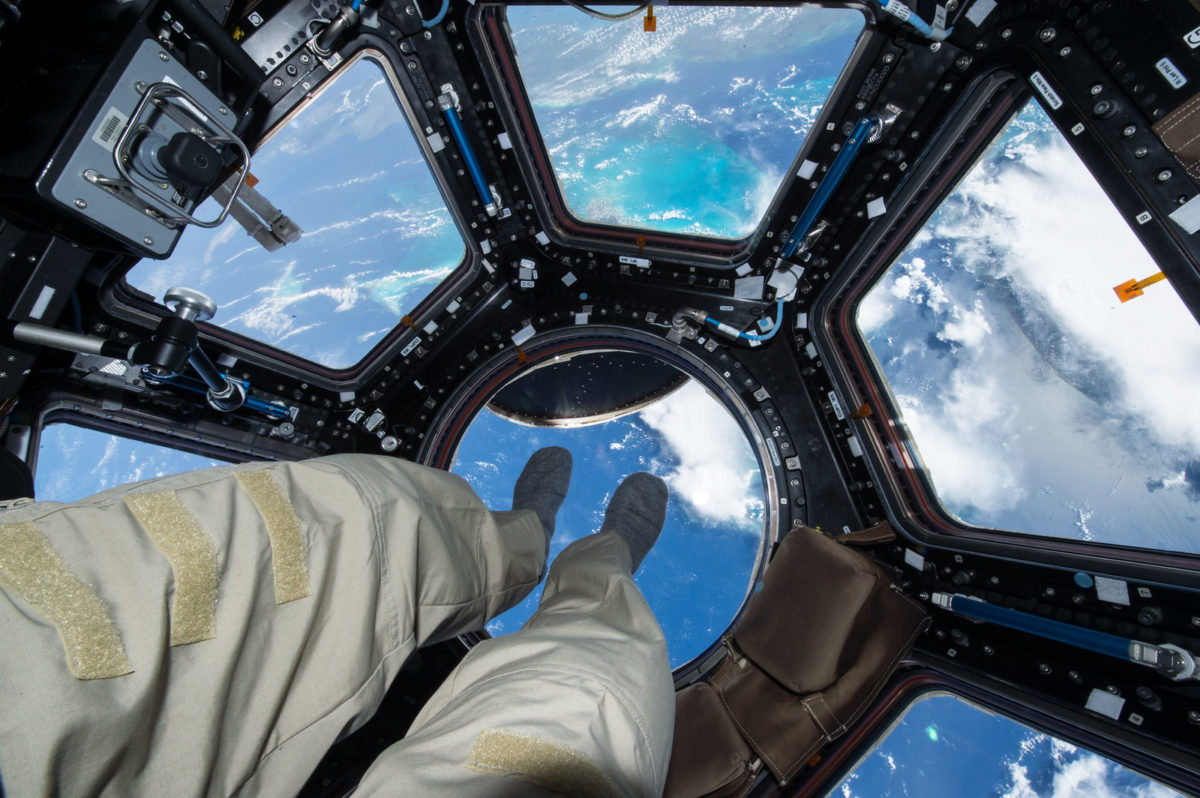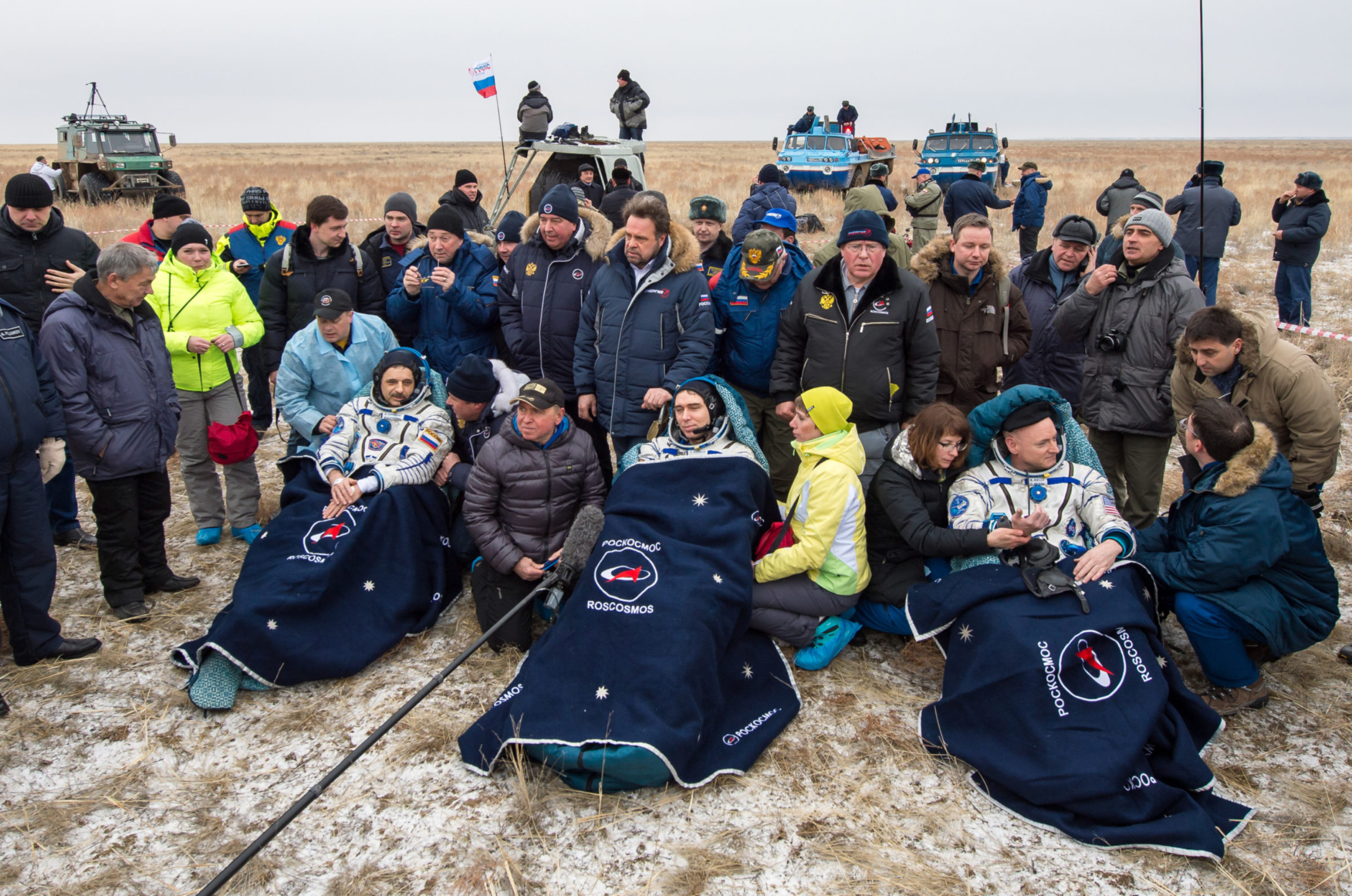Jason Davis • Mar 01, 2016
One-year crew all smiles after safe landing in Kazakhstan
The first two crewmembers to spend a year aboard the International Space Station have safely returned to Earth.
Wednesday morning in Kazakhstan, a Soyuz spacecraft carrying NASA astronaut Scott Kelly and cosmonauts Mikhail Kornienko and Sergey Volkov touched down under an orange-and-white striped parachute. Back in Mission Control Houston, where the local time was 10:26 p.m. Tuesday, flight controllers erupted in cheers as NASA astronaut Scott Kelly was extracted from the capsule. The main purpose of the record-setting, 340-day trip was to learn more about how long-duration spaceflight affects the human body.
.@StationCDRKelly is back on Earth after a historic 340-day mission. #YearInSpace https://t.co/Ms32cFpWbm
— Intl. Space Station (@Space_Station) March 2, 2016


Here's a multimedia recap of the one-year crew return. You can read our landing preview here.
On Monday, February 29—leap day—Kelly formally handed command of the station over to NASA astronaut Tim Kopra.
Tuesday morning, Kelly tweeted five pictures of one final orbital sunrise. He then sent a final goodbye from the station's cupola:
#Thanks for following our #YearInSpace The journey isn't over. Follow me as I rediscover #Earth! See you down below! pic.twitter.com/7byNy6fMG4
— Scott Kelly (@StationCDRKelly) March 1, 2016
Kelly, like most astronauts, was a prolific photographer during his time in orbit. Those photographs are officially archived at the Johnson Space Center's Gateway to Astronaut Photography of Earth. There's also a second source that organizes photos by social media posts: the Windows on Earth Astronaut Photography website, managed by CASIS. Astronaut Reid Wiseman said on Twitter that Kelly had tweeted 1,000 photos. Here's one example:

On Tuesday afternoon, Kelly, Kornienko and Volkov bid farewell to their ISS crewmates, Tim Kopra, Yuri Malenchenko, and Tim Peake.
Kopra, Yuri Malenchenko, and Peake will remain aboard the station for another three months. The station officially switched to Expedition 47 when Soyuz TMA-18M undocked three-and-a-half hours later.
On March 18, 2016, NASA astronaut Jeff Williams and cosmonauts Oleg Skriprochka and Alexey Ovchinin join the crew, launching from the Baikonur Cosmodrome in Kazakhstan aboard Soyuz TMA-20M.
Here's how the rest of the year plays out for crew rotations:
Kelly, Kornienko and Volkov undocked at about 8:00 p.m. EST:
Later, the Soyuz fired its engines for four 4 minutes, 49 seconds to plummet out of orbit.
#Soyuz spacecraft fires engines before entering Earth's atmosphere w/#YearInSpace crew & @Volkov_ISS pic.twitter.com/nd0UvaC7Xc
— Intl. Space Station (@Space_Station) March 2, 2016
The Soyuz descended gently under parachute:
New views of the reentry of the #YearInSpace crew earlier returning to Earth from @Space_Station: https://t.co/96LV6YYR3r
— NASA (@NASA) March 2, 2016
Touchdown occurred at 11:26 p.m. EST.
Touchdown! #Soyuz lands at 11:26p ET/4:26a UTC w/#YearInSpace crew. More about landing... https://t.co/ebHcdU5cxB pic.twitter.com/wjrJ9V4lWw
— Intl. Space Station (@Space_Station) March 2, 2016
A few minutes later, Kelly, Kornienko and Volkov were removed from the capsule. All were in good spirits before being moved to a nearby portable medical tent.

In the medical tent, Kelly and Kornienko will participate in a series of field tests to see how well their bodies can perform simple physical tasks without assistance. The tests are meant to investigate how difficult it will be for future astronauts to function after landing on Mars, following a long journey in weightlessness.
Support our core enterprises
Your support powers our mission to explore worlds, find life, and defend Earth. You make all the difference when you make a gift. Give today!
Donate

 Explore Worlds
Explore Worlds Find Life
Find Life Defend Earth
Defend Earth

